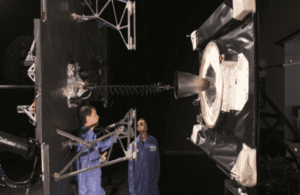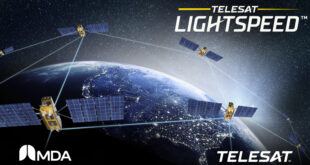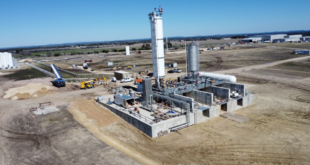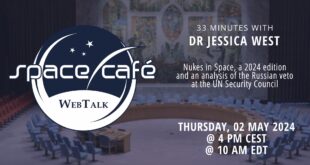
A unique, collaborative experiment being conducted by the UK’s A unique, collaborative experiment being conducted by the UK’s Defence Science and Technology Laboratory (Dstl) and representatives from the Five-Eyes nations (Dstl) and representatives from the Five-Eyes nations (UK, US, Canada, Australia and New Zealand) aims to make improvements in Space Situational Awareness (SSA). Two satellites are due to rendezvous for the experiment in near-Geostationary Orbit this month (February 2020).
Known as Phantom Echoes, the experiment aims to demonstrate how allied SSA sensors and processing capabilities can be integrated to enhance the performance over individual systems working independently to improve space safety for UK and allied satellites in and near Geostationary Orbit. A combination of simulation and real-world events will be used to understand the strengths and constraints of each system that will advise the development of operational SSA architectures within the Coalition Space Operations (CSPO) initiative.
A cooperative observation campaign will be conducted using allied ground-based telescopes and space-based sensors to observe the Northrop Grumman Mission Extension Vehicle (MEV) that was launched into Geostationary Transfer Orbit (at 36,000km altitude above Earth’s surface) on 9 October 2019 from Kazakhstan. The first of its kind, MEV will dock with a commercial communications satellite approximately 300km above Geostationary Orbit and provide manoeuvre capability that extends the lifetime of the host. The Phantom Echoes team will use this event to understand the challenges posed in observing this unique mission as the two satellite manoeuvre towards each other and perform docking operations.





